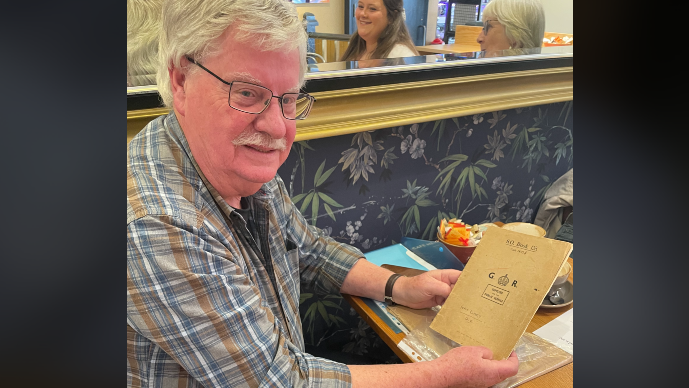WW1 soldiers buried 110 years after deaths
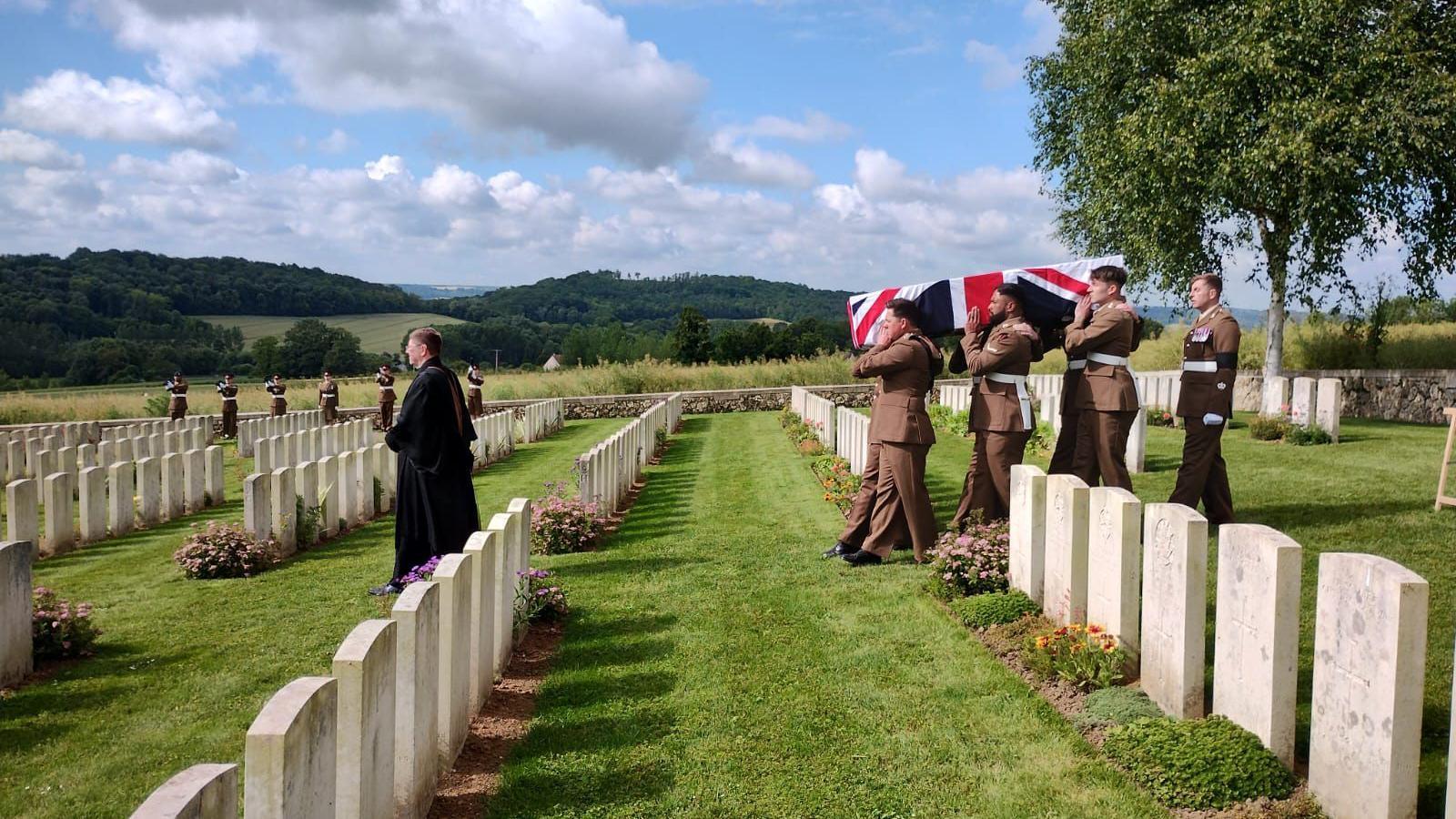
The ceremony took place in France on Wednesday
- Published
Two soldiers who died during World War One have been laid to rest, more than a century after they were killed in action.
Sgt John Smith, from Gloucestershire, was buried with full military honours along with Gunner Charles Lightfoot, from Edinburgh, at the Vendresse British War Cemetery in France earlier.
The service was attended by members of their families and organised by the Ministry of Defence (MoD) Joint Casualty and Compassionate Centre, also known as the "MoD War Detectives".
The pair died during the Battle of Aisne in September 1914, but their remains were not found until 2009.
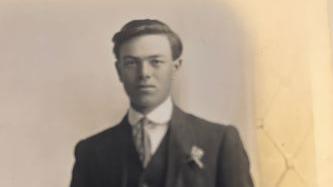
Sgt Smith was one of the men found in the cave
Sgt Smith and Gunner Lightfoot were presumed missing until 15 years ago, when French historian Jerome Buttet discovered an inscription in a cave near Chassemy.
It read: "15 Sept 1914. Here lies Sjt Smith and 3 Gnrs, 29th Battery RFA".
Mr Buttet brought in archaeologists, who discovered two sets of remains in the cave, although four men are thought to have died.
MoD detectives at Imjin Barracks in Gloucestershire carried out research and DNA testing, which allowed them to identify the two fallen men as Sgt Smith and Gunner Lightfoot, who both served with the 29th Battery of Royal Field Artillery.
The remains of the two other men - Gunner Adams and Gunner Blyth - are yet to be found.
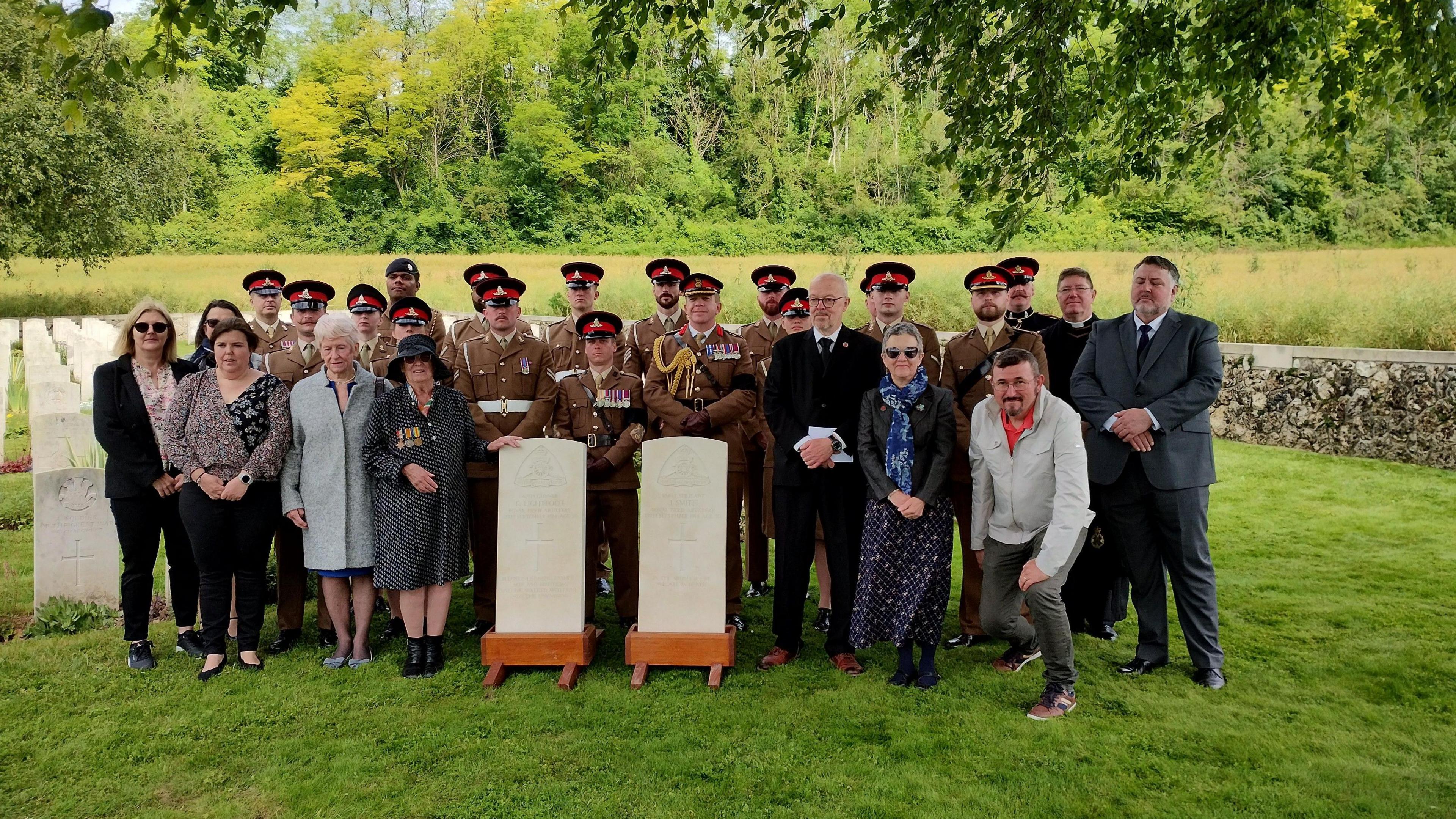
The families of the two soldiers came together to lay the men to rest
MoD War Detective Alexia Clark said it had been a "privilege" to give the men the "dignified burial they deserve" and offer closure to their families.
"I am grateful to Sgt Smith’s cousin and Gunner Lightfoot’s great-nephew for offering their DNA to allow us to identify these men, and for the input other members of the families have offered to create a truly special service for them today," Ms Clark said.
"Whilst Gunners Adams and Blyth remain unfound, we have also been able to remember them today, and acknowledge their sacrifice alongside that of their comrades.”
Follow BBC Gloucestershire on Facebook, external, X, external, and Instagram, external. Send your story ideas to us on email or via WhatsApp on 0800 313 4630.
Related topics
- Published8 June 2024
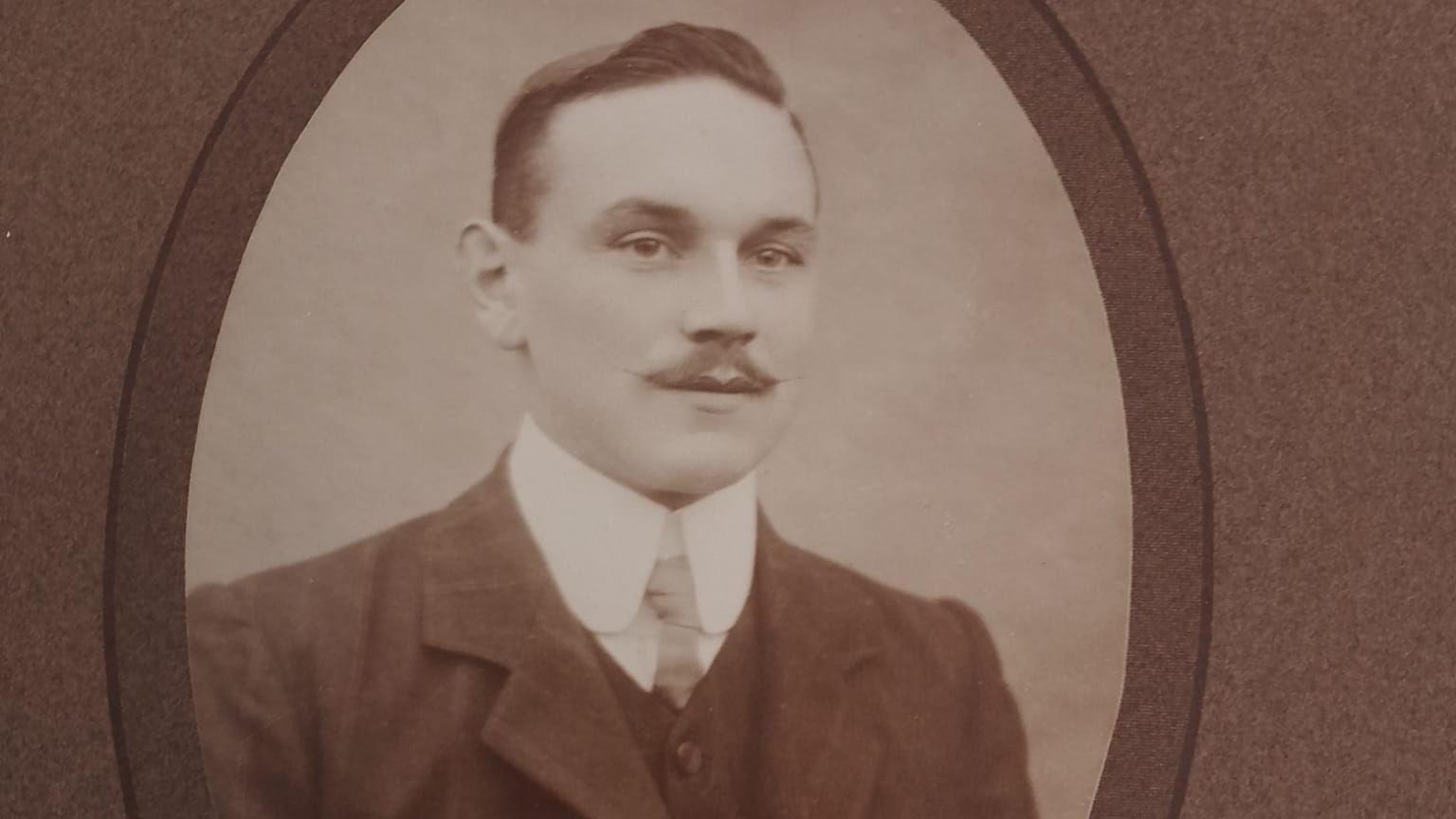
- Published4 June 2024
